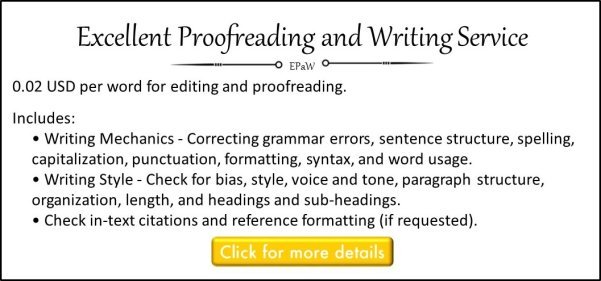Business Report Writing
Business report writing is used to explain the findings of a project to a wider group of people than were involved in the project. A business report is used to spread the knowledge that the participants in the project gained to the rest of the company.
It’s also a way of showing what you’ve done and what you’ve achieved.
Depending on the importance of the project you’ve been working on, the report might be read by many different people, at least it’ll be read by your boss. But it could end up being read by all the management of the company up to the chief executive. So you need to make it as good as possible.
A well written and presented report could result in you getting a promotion or being paid more.


Plan Your Business Report Writing
The most important part of business report writing is the planning stage. If you spend time planning and making sure you’ve all the information you need ready, the writing stage will be much easier.
The best way to plan, and then write, the business report is to use the general business report structure as a guide. The structure is the common sections that the majority of business reports will need. These are:
- Executive summary – This is a summary of the report, it should include all the main points from the report itself and be written last so that it truly reflects the information in the report.
- Contents – A business report can be a long document, so help the people that’ll read it by adding a contents section so they can find the information they need quickly.
- Introduction – The introduction contains background information about the topic of the report and any information that someone might need to be able to understand the report. This should explain why the topic of the report was important.
- Findings (main body) – Explain what you did and what you found. This is the main part of the report as it includes all the information you generated while writing the report.
- Conclusions – You’ve spend a long time working on the report so you’re in the best position to draw conclusions from the findings. Make your conclusions clear and easy to understand. If possible split them up so it’s easy to see how they can be used and what needs to be done because of them.
- Recommendations – Make specific recommendations from the findings of the report. The report was commissioned to provide useful information. This is where you explain and list what should be done to solve a problem or to be able to work better in the future.
- Bibliography/sources – If you’ve quoted or used information from another source include a reference to the source here. Also include any other reports, books or papers that are about a similar topic, which haven’t been referenced but would be useful for someone to read if they wanted more information.
- Appendices – If the report generated large amounts of data it would get in the way if you included it in the findings section (just include a summary there) but it can be included in the appendix so other people can see what you used to draw your conclusions.

Business Report Writing
Once the business report has been planned you can start to write the report.
Don’t expect to produce a finished report in the first draft. You’ll need to rewrite and make improvements to your report several times before it’s ready. The amount of time you’ve to perfect the report will depend on how urgent it is, but try to make sure you’ve time to do at least a couple of drafts.
In the first draft just write; follow the plan and get the report written. Mistakes can be fixed latter. Don’t keep going back and changing things or reformatting them. Get the whole report written.
Once the first draft is written you can go back and fix any problems. This is the time to make sure that you included all the information, from your plan, in the report.
When writing the business report aim to write a document that's clear and concise, so it’s easy to read and understand. This is important because the people reading it might be busy and so want a document that they can get information from as easily as possible. Also they might not be native English speakers. Using simple and clear language will help them understand your report.
If you need to write a business report for a non-native audience see the page about international business writing. If you’re a non-native writer see the page about ESL business writing and the ESL writing section for tips and advice.

Business Report Proofreading
Once you’ve finished writing your report but before you submit it you’ll need to do business proofreading to make sure there aren’t any mistakes left.
The proofreading stage is when you’re just trying to find the last few mistakes with grammar or spelling. This isn’t the stage to be making major revisions to the contents of the report. Proofreading is important because your boss and, hopefully, many important people in your company will be reading the report. You need to make a good impression and can do this by making sure there aren’t any mistakes left in the report, as these will leave a bad impression.
See the English proofreading section for lots of resources to help you do your own proofreading.

If you’d like a professional proofreader to help perfect your business report writing you can use my proofreading service. I offer a free trial for new customers and you can contact me through the contact me page or at the Excellent Proofreading and Writing Facebook page.

Return to Writing Business Plans from Business Report Writing
Return to Excellent Proofreading and Writing Homepage from Business Report Writing



By Jolyon Dodgson, copyright © 2011-2020.
Excellent-Proofreading-and-Writing.com - Proofreading and writing help for excellent first impressions.





New! Comments
Have your say about what you just read! Leave me a comment in the box below.